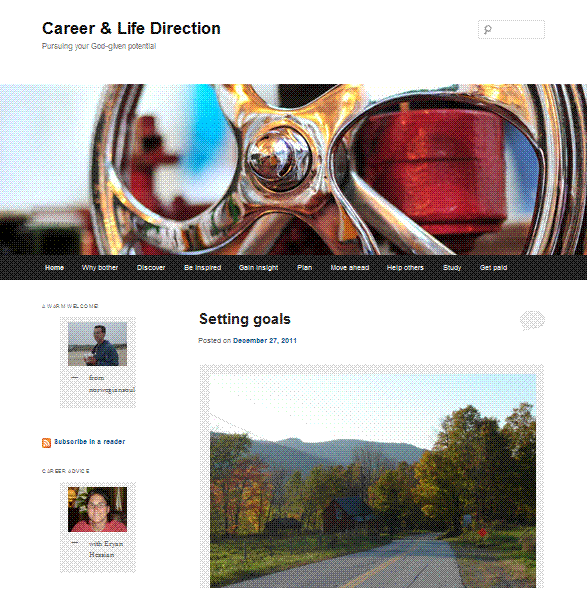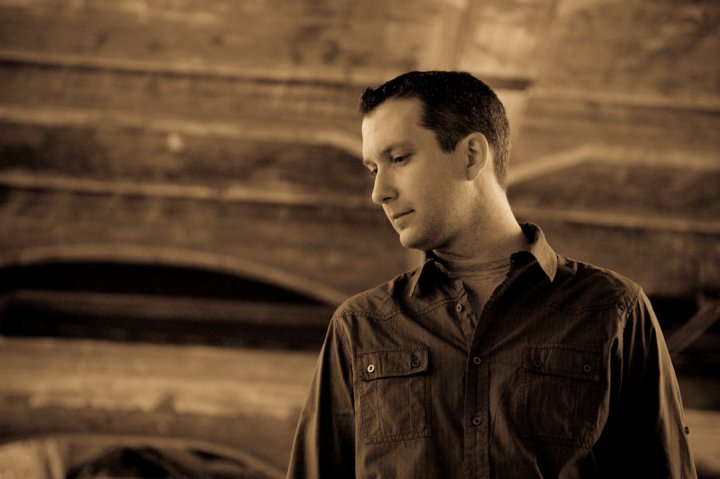Facing adversity
- At September 15, 2018
- By Nathan
- In Effective living
 0
0
Adversity can be overwhelming but it can also function as a friend.
Hmm. What do you think about that statement?
This awkward observation might not seem to count for much when a new difficulty suddenly turns up on the horizon or an old and enduring issue just will not go way. Pointing out the positive potential of a painful situation may sound inappropriate and incredibly insensitive to some. But it’s worth remembering just the same, in the midst of daily life and even during the latest collective crisis or serious personal dilemma.
Hard times can actually help.
While a very small percentage of people on the planet may live, or appear to live, relatively problem-free lives, most mere mortals will have to face one perplexing form of adversity after another culminating with the daunting experience of death. Isn’t that an encouraging thought? Sure, there is more to life than endless struggles and difficulties. But hardship is still present more often than not whether we like it or not; it’s part of the ancient package.
People that acknowledge God may be tempted to think that this good and powerful personal being exists primarily to make life easier and to facilitate lasting personal and group success. Of course it all depends how you define this term and when.
But how many prominent characters in the Bible had easy lives?
Aside from the assorted kings listed and a few powerful religious leaders, maybe two or three? Life was arguably quite satisfying for famous individuals like Joseph, Paul and Mary, etc. but their experience was often difficult, incredibly challenging and difficult, nonetheless.
Know anyone who has been sold as a slave by their own family members? When was the last time you heard of someone being stoned with real stones? Ever had to flee to another country because some local tyrant was trying to kill your kids?
Hello adversity!
Affliction is a good man’s shining time. – Edward Young
All too often adversity comes across as one more meaningless and far less enjoyable experience stacked up alongside all the others. Unfortunately, many are tempted to get out or at least check out if they can. After all, euthanasia is now legal in Canada and hundreds of marijuana stores will be opening soon.
This is to say that the potential value of adversity can be denied by fuzzy religious thinking or distorted by plain old-fashioned secular dogma.
How does adversity function as a friend? Anyone interested in a more detailed treatment of this topic might want to read How to Handle Adversity by Charles Stanley. However, the main point to remember is that adversity can serve as a powerful and positive teaching tool.
In other words, it can improve your perspective.
For example, a lack of tangible and visible success can make a person realize that it was all overrated and somewhat hollow and shallow as a primary objective and measure of self-worth in the first place. It is critically important to have basic needs met. But beyond that, so what if one temporary human being manages to obtain a little more social status, if obtaining higher status is largely what human activity is all about, than another.
In the larger scheme of life…really, who cares? There must be another objective.
So often the level of success each person is able to reach is dependent on many issues and realities beyond their control. This is not to downplay the role of persistent personal effort. But it is necessary to acknowledge the role of multiple external factors. If your country has a very high level of unemployment it is going to be that much more challenging to find a job. And if adequate financial resources are lacking, moving to another country will be very difficult if not impossible.
Experiencing adversity can result in a serious and much needed reevaluation of the overall place of public approval and personal acclaim. It is dangerous to not care at all about what other people think. But it is also possible to place far too much stock in other people’s opinions. Having recently read books about John F. Kennedy, Richard Nixon, Margaret Thatcher, Winston Churchill, Bill Clinton, Ronald Reagan, George Washington, Elizabeth Bowes-Lyon/The Queen Mother, George H.W. Bush and George W. Bush, it is quite clear that public figures should expect a measure of determined opposition.
This is par for the course.
Certainly leaders as well as ordinary citizens can make serious mistakes and may need to feel the weight of public disapproval in order to be motivated to change their behaviour. But a significant percentage of journalists are not going to approve of the current American president no matter what he does. And some people are just not going to like you either. That’s life.
Being on the receiving end of vocal or more subtle opposition may not necessary mean that you are at fault. Not at all. On the contrary, it may indicate that you are doing exactly what needs to be done. It is valuable to learn how to carry on in the face of persistent opposition. Adversity can serve to clarify what is worth metaphorically or literally fighting for.
When Iraq invaded Kuwait in 1990 there was naturally a great deal of debate regarding how best to respond between Margaret Thatcher and George H.W. Bush. Presumably while conceding one of the president’s points, Prime Minister Thatcher famously replied, “Alright then George, but this is no time to go wobbly.”
Adversity has a wonderful way of firming up some of the unwarranted wobbliness in our lives.
© Career & Life Direction 2018. All rights reserved.
Getting things done
- At August 14, 2015
- By Nathan
- In Effective living
 0
0
While I have never been to China, my impression is that China is one country where a great deal gets accomplished in a short period of time. Meanwhile, I can’t say the same thing about my home country – Canada.
By any measure, China has experienced amazing growth and transformation during the past 50 years. As a result, many other countries are lining up in an attempt to cash in on their success. While I wouldn’t want to live under a communist dictatorship, I would like to live in society where there are signs of tangible progress. This isn’t to say that growth is always entirely positive or that China will turn out to be a benign major power in this world. But I really like the fact that the Chinese government, and many citizens in that country, have found a way to get things done.
It’s tempting to launch into a rant about what has gone wrong here in Canada. For it sometimes seems like 78 studies are required and 49 regulations must to be considered before a light bulb can be changed over at the House of Commons – that is, if this practice isn’t said to be in conflict with the Charter and the Constitution as interpreted by the feelings of the lawyers over at the Supreme Court last Monday morning. It is easy to point out that there is presently too much articulate talk and not enough plain and ordinary action. But this approach would also fail to appreciate the progress that has been made, the safeguards that are likely necessary, and the complexity that is often involved when considering public ventures.
As the saying goes, if I want change I also need to be willing to be the change. And I have noticed, as of late, that positive change in my own life requires a large amount of effort and seems to take a very long period of time. If I am slow, how can I expect everything around me to take place at a record pace?
But in the end, maybe it doesn’t matter so much whether you or I are getting important things accomplished at a record pace or over a protracted period of time. What does matter, though, is that significant projects are gradually being checked off of our “to-do” lists and we are moving in the right direction. It has often been mentioned that life isn’t just about doing things at a frantic pace – as important as they may seem. And yet, it is very important to get in the habit of getting important things done.
Does this sound too obvious to even mention? Is this observation for the more task-oriented folks who may have inadvertently stopped by? Should this message ideally be directed towards a few Facebook addicts you know?
What I like about this topic is that it forces (or perhaps invites) each one of us to think about what we need to focus on at this time. And this will be different for each person. The idea is to get moving if it becomes apparent we are perpetually stuck or that a time of rest and refreshment has turned into a prolonged distraction from important duties. By way of example, I am going back to school this fall and moving to another city in order to do that. So most of my energy must be focused in that direction. Nobody is going to find a place for me to live or sign me up for the required classes or read the stack of books I need to read, etc.
How about you? I very much appreciate that you stopped by this website site. But if I can be quite direct, without hopefully causing any offence, here is a question to consider:
What should you really be doing right now?
If it isn’t clear what you need to focus on, spending time at a website like this could help you eventually establish goals and begin to move. In other words, if I don’t know what to do I need to make figuring out what to do a priority. Working at discerning your next step is a worthwhile and absolutely necessary activity. It requires effort and should be defined as valuable work. It might not look like you doing much when in reality you are doing exactly what you need to do.
My decision to go back to school and study public policy is actually the result of several years of sustained reflection. Did I mention that I am slow? So don’t get discouraged if your own attempt to clarify your life direction seems to be taking a very long time.
On the other hand, if it is quite clear where your energy needs to be directed and yet you have failed to take the necessary first or second or third step…then lingering online much longer could become a problem.
Driving by a government building some time ago, my wife mentioned in a lighthearted way, “That’s where they make the red tape.” It was a funny comment at the time and contains an element of truth. And yet, it is sobering to realize that we each have the capacity to act and can’t really blame the government or anyone else if we choose not to.
© Career & Life Direction 2015. All rights reserved.
Personal development
- At February 17, 2015
- By Nathan
- In Career Planning
 0
0
Would it makes sense to compare your life and what you have to offer to a product that needs to be developed? Could reflection on a standard marketing strategy provide a new and necessary perspective?
Viewing any person primarily as a product to be developed and marketed would be a mistake. Nowadays, an excessively materialistic mindset leads some to view pretty much everything in terms of cash value. If a dollar value is lacking, whatever is being considered isn’t said to be worth very much. All too often personal worth is determined by net worth. And soon enough this bottom-line thinking leads to a distorted understanding of human life.
That being said, it may be valuable to think about who you are and what you have to offer in terms of the classic Five P’s of Marketing which includes (1) Product, (2) Price, (3) Place, (4) Promotion, and (5) Perseverance. And today, we will consider the first one.
My introduction to marketing took place as I set out to learn about marketing music. In this context, the obvious place to begin is with some good-quality music to offer people, whether in a live setting or via a studio recording. And this takes an incredible amount of time, effort and money; it obviously doesn’t just happen. Likewise, in terms of a career, we each need to honestly ask what we have to offer that is substantial to a potential employer or client in a very competitive world.
Do you have an appealing “product” to present to anyone right now? Or is this the time when you really need to focus on your personal/product development?
A creative product needs to be carefully produced
My story is similar although not quite the same. Aspiring to teach at the college level, I had my sights set on a Ph.D. While I got close, by way of a graduate degree, this basic educational requirement evaded my grasp. Several more years of study would have been required, and this would have cost thousands of dollars – money I didn’t have. But I applied for a number of college teaching jobs just the same, and of course wasn’t hired.
In other words, it doesn’t make sense to hone our resume writing skills before we have anything substantial to put in our resumes. Over the years I have read a lot of resumes that didn’t really say a whole lot. At the same time, I have read a large number of job descriptions which tend to be very specific and concrete.
Here’s the harsh reality:
A high school education doesn’t count for much. And many university programs don’t really matter. A few teachers might tell you how wonderful you are, but those teachers are never going to hire anybody. In fact, you have hired them. Most employers are looking for very specific training and skills together with years of experience.
Yes, some people are born into very privileged situations. And personal/product development may not be a pressing need for them. But for most people, it typically takes an incredible amount of hard work simply to move beyond step number one.
© Career & Life Direction 2015. All rights reserved.
Who am I?
- At September 18, 2013
- By Nathan
- In Career & Life Planning
 0
0
Have you ever stopped long enough to consider this question? And do you have an answer? Do you know who you are?
This basic question is asked by most everyone sooner or later. Even the non-introspective types take it on their tongues; that is, when all the frantic activity comes to an end. A very personal question, it comes up again and again. Perhaps it is asked so often because the answer is not always immediately obvious. The answer isn’t compelling or clear.
Who am I? Who are you, really?
Maybe other curious creatures also raise this probing question. Or is it only human beings who sometimes seem perplexed? For example, what kind of thoughts would you expect to find in the brain of an average bear? What is a furry creature like a bear for, anyway? Do they wonder? And how about the specific and unique purpose of any particular hungry bear you happen to meet deep in the forest while hiking all alone?
For some reason, it’s a challenge to imagine a young grizzly bear perched high up on a mountain side peering up into the night sky and pondering the meaning of the universe and its place in it all. At least for me. If a bear was asked about his personal aspirations and identity he would probably simply say, “Give me lots of berries, a lost human hiker or two…and I’m good.”
While each person will have to work towards an answer to this lingering question, here are a few answers to avoid along the way:
1. “I am…completely defined by what other people think or say”
The other day, I had the unpleasant experience of standing in line at a fast food restaurant and being forced to listen to a disturbing conversation going on in front of me. Thankfully, I can’t remember ever listening to a conversation quite like this one.
For some reason, one older man felt compelled to put his companion or friend down in this public place. He did this again and again. I witnessed verbally abusive behaviour that was completely uncalled for. And I hope that the other man didn’t believe or accept what was said.
Most of the time, of course, the situations we find ourselves in are not as obvious or as cut-and-dried. Usually it is a good idea or rule of thumb to carefully consider what other people think and say – particularly people you are close to and respect.
But at the same time, always remember this: No influential person or party or group or culture or family member or friend can define who you truly are.
It just doesn’t work that way.
2. “I am…completely defined by what I happen to think or say”
Well then, is it possible to define yourself in absolutely any way you happen to like? Some people seem to think so.
Despite evidence to the contrary, they insist that reality must be infinitely flexible. They are apparently whoever they claim to be. And nobody is allowed to say otherwise. When the “Sez who?” question is asked, they have an answer. They are the answer.
If I say that I am a skilled metal worker or a brilliant scientist or male or female or the product of a random cosmic event, etc. then so it must be. The idea is to pretty much block everything out and then assume that the universe will adjust to fit the latest ideas that happen to be bouncing around in your head.
Shocking but true. Crazy, but all too common.
For the record, this extreme position tends to be embraced by those who claim to have lost their faith in an established philosophy or religion or faith or worldview. Oddly enough, they simultaneously seem to discover an enormous – some would say ridiculous – amount of faith in themselves.
Moving along.
3. “I am…completely defined by my understanding of what God thinks or has said”
Don’t get me wrong. This isn’t a believe-whatever-you-happen-to-like statement at all. This is a word of caution.
As you may know, there was a time when many Christians thought that a very limited number of honourable occupations were available to them. Being a pastor or missionary or teacher or nurse or full-time Christian worker of some sort got you lots of respect. But that was about it.
Thankfully, this understanding is no longer as prevalent as it once was. But given such a situation, what do you suppose might happen? Young people who are not really suited for these high-ranking roles might be tempted to force themselves to fit.
So you live and learn. Just because God has spoken doesn’t always mean that we each have a perfect understanding of what has been said.
Who am I? My creator knows who I am and what I could become. I don’t. Although I know much more now than I once did.
© Career & Life Direction 2013. All rights reserved.
*Your comments are appreciated. Go to the top of this or any other blog post. Click on the number to the right. Then scroll to the bottom of the post. A comment form will be waiting for you there. Feel free to share your thoughts. Comments are screened and may not all be posted.
Empowering more people
- At April 30, 2013
- By Nathan
- In Leadership
 0
0
Career & Life Direction welcomes Dr. Barry Slauenwhite as he reflects on personal initiatives which have helped Compassion Canada to grow and thrive.
I have been serving with Compassion Canada for almost 30 years. The first ten years was spent as VP of Marketing and Communications and the last 20 years as President & CEO. Over this timeframe I have seen a lot of changes…most of them ones I have initiated. Some out of necessity and some out of innovation. None without their fair share of stress and hard work.
When I was first appointed to the role of CEO I asked the board for one year of no growth so that I could concentrate on rebuilding the foundation of the organization. Although we had experienced modest growth over the previous ten years, it was obvious that the organizational structure would not sustain stronger growth and the potential was much greater than what we had realized. We had experienced consistent deficit budgets and struggled to meet our financial obligations. Although we were bringing in new donors we were not doing a good job of servicing and retaining them.
And now, 20 years later, Compassion Canada has grown by 900% and we are considered to be a leader in donor retention.
The first move I made was to build a new organizational culture. Staff morale was low as was productivity. I took the staff away on a two-day retreat and introduced my new philosophy of how we work together emphasizing the Fruit of the Spirit mixed with excellence in how we carry out our work. This one exercise proved to be a valuable investment in boosting staff morale and productivity.
The second step was to create a team style leadership. Our leadership tended to be more autocratic and staff felt their giftedness and skills were being undervalued. We emphasized collaboration, empowerment and joint decision-making. I formed an executive team that continues to be the backbone of how we run the organization. Work teams were created along with cross-functioning ministry teams to ensure communication was flowing to all levels of the ministry.
Engaging the staff and giving them a voice in decision-making produced almost immediate results. Morale dramatically improved and productivity soon followed. Then I turned my attention to more structural issues such as board governance.
The potential was much greater than we had realized
Compassion, like many NGOs, was heavily dependent on government funding. This created somewhat of a laissez-faire attitude towards fundraising. We had not developed a strong private donor network which positioned us to be quite vulnerable to government funding whims. Hence a significant portion of our funding and subsequent program activity followed the roller coaster agendas of the government foreign aid agenda. After coming to grips with the long-term implications of this funding model we developed a private donor strategy that replaced government funding and created a whole new network of donors that continues to be the backbone of our funding program.
Lastly, we created a national volunteer strategy to mobilize current and future donors to passionately promote the ministry cause. Initially just a handful of committed people, this network now numbers over 2,000 and has become a significant component of our marketing strategy and is responsible for a sizable portion of our overall revenues.
 To help measure the effectiveness of my strategies, I engaged the services of the Best Christian Workplace. This tool gives me an accurate pulse of how the staff is doing and what areas I need to give attention to. It provides a mechanism for staff feedback and overall staff health. The data from this feedback helps me adjust my strategies in tweaking what is weak and building on what is strong.
To help measure the effectiveness of my strategies, I engaged the services of the Best Christian Workplace. This tool gives me an accurate pulse of how the staff is doing and what areas I need to give attention to. It provides a mechanism for staff feedback and overall staff health. The data from this feedback helps me adjust my strategies in tweaking what is weak and building on what is strong.
Over these 20 years as CEO I have learned the value of surrounding myself with good people. People who are passionate for the cause, committed to Christ and His church and competent in their skill set. I have learned that character is more important than skill and that people thrive in an environment where they have a cause and are able to express themselves in responding to that cause.
Dr. Barry Slauenwhite has been serving with Compassion Canada since 1983. He is a leading voice in the Canadian Christian community, speaking on behalf of the poor. Barry and his wife, Sharon, live in London, Ontario, and have two adult daughters and two grandchildren.
Flying high: Helpless no more
- At February 08, 2012
- By Nathan
- In Meeting Needs
 0
0
As you journey through life, it is seldom possible to ever be in complete control. There is always something that is out of your control and mine.
Accidents happen. Storms hit. Cancer strikes. Friends move away. People die, etc. Having said that, it is rarely necessary to be completely helpless and dependent either.
Infants are helpless; grown adults should not be, or at least not most of the time.
Sitting back in your seat, resting, as the 747 roars and rattles down the runway, is to experience what it is like to be helpless as an adult. No wonder so many are afraid to fly. Pilots are particular people: they never let their passengers drive. They insist on sitting behind the controls, and pushing all the fancy buttons, all by themselves. To fly is to place your life temporarily in your pilots hands. You have no other choice but to sit passively while the captain is in full control. This might be a good idea, but then again it might not. Who knows? The uncertainty is frightening.
As your plane takes flight, questions fill your mind in rapid succession: Did your pilots get enough sleep last night? They sure looked tired greeting the passengers. Did they have anything suspicious to drink this morning? Just coffee? Is he emotionally stable? Today would not be a good day for a mental breakdown. Is she physically healthy? How long has he been a pilot? Is she really who she claims to be? Do they text all their friends while they fly? And finally: Why don’t they just clear out of the cockpit and let me drive? But that could be scary too. Oh, yes it would.
An old story from the old country (from the perspective of some North Americans) describes how dangerous it can be to just be a helpless passenger on a long trip. Two older men were flying from New York to Oslo, Norway, when two explosions shook the their plane. “We just lost one engine on each side,” the pilot said calmly over the intercom. “Do not worry. Everything is under control. We still have two good engines. There will, however, be a 2 hour delay.”
One hour later, 34,0000 feet over the Atlantic ocean, another engine blew. BAM! “We lost our third engine,” the pilot said, trying to sound calm and composed. “Do not be alarmed. Expect a 3 hour delay.” Twenty minutes later…KABOOM! Everyone on board inhales, and people are about to panic, as Ole turns to Sven and says, “Oh no, now we’ll be stuck up here forever.”
Realizing that you are in a very dangerous situation and feeling out of control can motivate you to grasp at as much control as you possibly can in other areas of your life. This is futile. Pointless. For you will always be exposed to the positive or negative influence of other peoples actions. Life is full of risk and it will never be completely under your control. But as you develop your career, and journey through life, it is helpful to recognize the importance of having a measure of control over your life. The pendulum does not have to swing in the opposite direction to the opposite extreme.
So here are four things you can do to gain back a healthy measure of control in your life if you feel like you have lost it. And yes, this list is brought to you by the letter “D.” All of the other letters in the alphabet must be very, very sad. For the record, if you have been to Career & Life Direction a few times before, you will notice that none of this is entirely new.
1. Determine your career direction
It is painful to put it in such plain terms, but the goal this website is not primarily to get you to read one message after another, until the end of time, about your career and life direction. What would be the point of that? Actually pursuing your God-given potential is much more important than just reading about it here or somewhere else.
One spin-off of doing something concrete, is that you will gain a greater degree of healthy control in your life. Think about it. Who has more power? The 35-year-old guy living in his parents’ basement with little to offer in terms of marketable skills, or someone with a tangible career and clear direction in life?
2. Discover and be yourself
A few resources and a considerable amount of verbal encouragement here at CLD will hopefully inspire you to get to know yourself better than you have before. This new knowledge will empower you to make significant life decisions that are more of a fit with who you are. Being able to say, “I am going this way and not that way!” is huge.
Suddenly your life has a greater sense of focus, and it becomes more difficult to be tossed this way and that and bossed around. To be fair, most people in your life to not likely intend to run your life. Out in the ocean, by way of comparison, the waves just do what they do. It is the ship that is adrift that really has the problem
3. Defend your personal boundaries
This title is not ment to suggest images of aggression and hostility. It is intended, rather, to encourage you to continue to be yourself when you bump into people who don’t respect who you are or what you do. This will happen. Remember, their lack of respect for your dignity as a unique human being is their problem not yours. Often this takes place because of deep insecurities; so don’t be too hard on someone who is pushing and pressing you down while promoting themselves.
At the same time, don’t confuse humility with becoming invisible. You matter. Your life matters. Your contribution matters. Make sure that you show up for your own life.
4. Develop your worldview
If you think that every belief system or religion or worldview is pure propaganda, or just a matter of personal choice, you may tend to tune-out right about now. I don’t. So here is a suggestion, or if you like, some advice: Don’t let other people (media people, university people, publishing people, etc.) push you around, telling you what to think and feel and believe and exactly how to live. Take some time, perhaps a lot of time, to investigate and think for yourself.
Nowadays, a lot of people in the West – even some who attend church on a regular basis – have, say, a grade three understanding of their Christian heritage and a grade ten comprehension of the latest naturalistic philosophy of life. If this imbalance describes your situation, something needs to change.
Everybody enjoys little children. But children all need to grow up some day and become adults.
© Career & Life Direction 2012. All rights reserved.






































